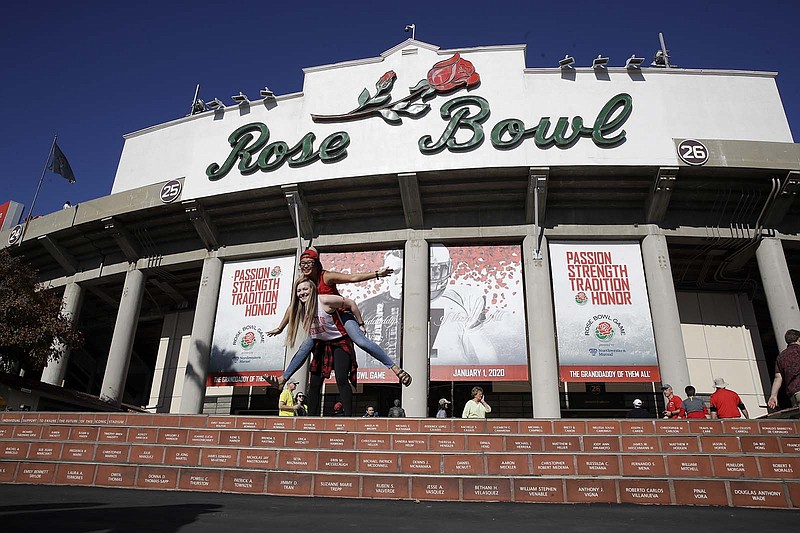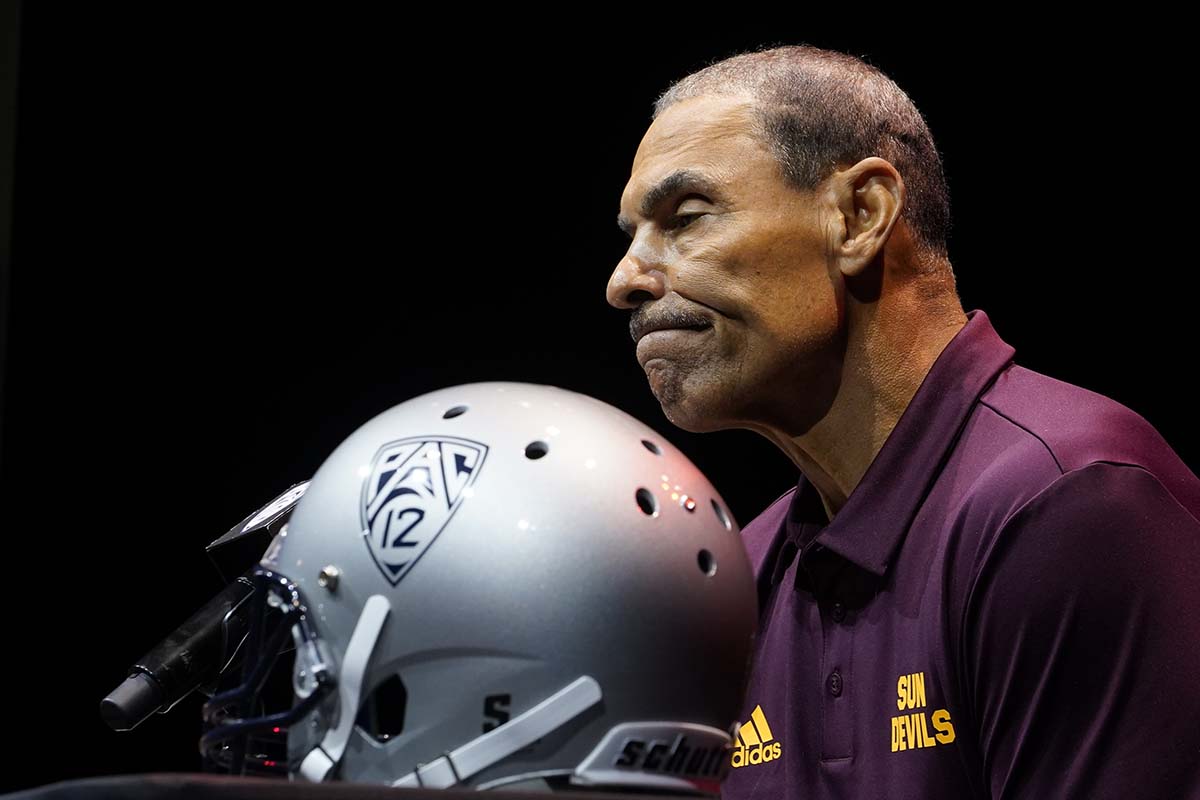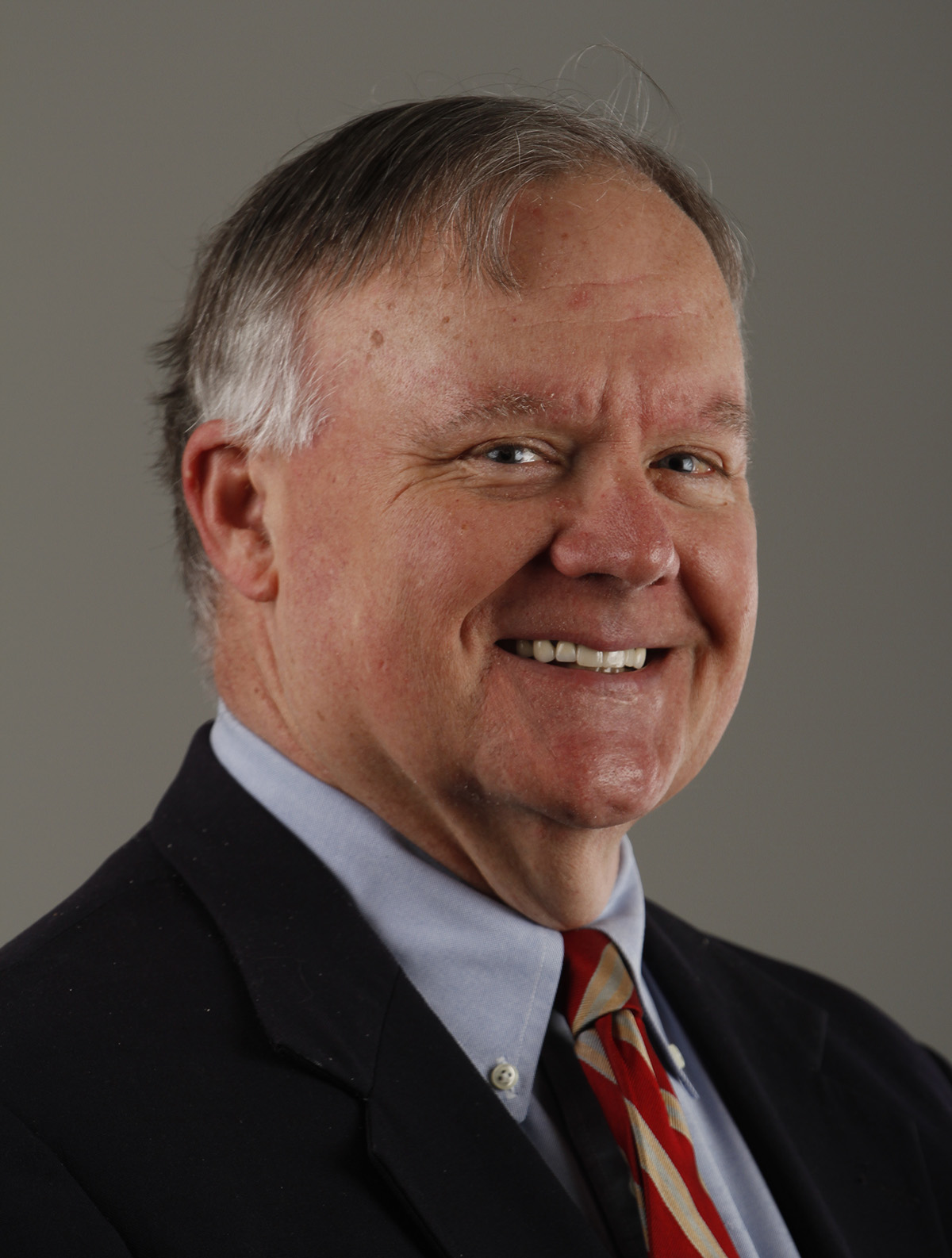He may not admit it, but Pac-12 commissioner George Kliavkoff is a desperate man these days.
With his two most tradition-rich, television ratings-powerful schools in the University of Southern California and UCLA soon exiting to join the Big Ten, Kliavkoff's athletic conference is in serious long-term financial trouble compared to the so-called "super leagues" the Big Ten and Southeastern Conference have become.
Or as Arizona State football coach Herm Edwards noted during his turn at the league's media event Friday in Los Angeles: "How can your conference generate money? Television."
Further explaining what he meant, Edwards said of that money: "(It's) going to help you provide for your student-athlete. You'd have to provide not just a scholarship. It's a little bit more than whatever that may be. ... You're going to have to do that (to compete). And how do you do it? You have to generate money."
And generating that money when you've probably just lost the interest of the No. 2 television market in the country - the L.A. area trails the New York City area - is going to become exceedingly difficult, though it is worth noting that Pac-12 members Cal and Stanford do call the nation's sixth-largest TV market (San Francisco-Oakland-San Jose) home.
Still, when you think of college football, you think of Southern Cal a lot, UCLA some and Cal-Stanford not much at all unless you're still drawn to that 1982 "Big Game" - as the schools insist on labeling their yearly contest - where the Stanford band ran onto the field during the game-ending kickoff return by Cal, which somehow led to the Bears scoring the winning touchdown on a series of laterals in what has since become known simply as "The Play."
For those not aligned with Cal and Stanford, it might still be, some 40 years later, the only play in the history of the Big Game that's ever mattered, but the point is, without USC and UCLA, the Pac-12 has lost its top television package bargaining chip. Perhaps its only chip.
So Kliavkoff is now actively campaigning for a greatly expanded College Football Playoff format for Football Bowl Subdivision schools such as those that reside in the Power Five conferences: the Atlantic Coast, Big Ten, Big 12, Pac-12 and Southeastern.
And why wouldn't he? Because it's becoming more and more unlikely that his own league would be a routine qualifier under the current four-team format given that over the CFP's eight years of existence, only Oregon at the close of the 2014 season and Washington two years later have ever reached the playoffs, and Oregon is the only Pac-12 school to play for the CFP title, losing to Ohio State.
So Kliavkoff quite understandably told ESPN on Friday: "I'm in favor of expanding the College Football Playoff. I don't have particular issues between 12 and 16. I understand the arguments for and against."
It can certainly and intelligently be argued that not expanding the playoff probably shuts out every school that's not a member of the Big Ten or the SEC once we get to 2025 - if not before - and UCLA and USC are calling the Big Ten home while current Big 12 members Oklahoma and Texas compete in the SEC.
Maybe current ACC member Clemson could also get there, given its six playoff appearances and two national championships since 2015.
Then there's Notre Dame. The Fighting Irish have not won a national championship since 1988 and their two CFP appearances have mostly been embarrassments, the average margin of defeat a humbling 22 points in losses to Alabama and Clemson.
But whichever conference ultimately lands them for football - the Irish are already members of the ACC in every other sport - immediately goes to the head of the class where television is concerned. And should they remain a football independent, it's almost impossible to see any 10-win Irish squad not making a playoff of 12 or 16 teams.
No one could have imagined this 153 years ago when Rutgers and Princeton squared off in the first official college football game. One also can't help but wonder if most schools will even still be playing football 53 years from now if Arizona State's Edwards is right that it's all about to be about television and not every university can possibly make enough on television contracts to stay in business.
But it's something else Kliavkoff said - about new worries the Rose Bowl might end its long agreement between the Big Ten and Pac-12 any time the bowl is not hosting a CFP playoff game - that should worry anyone and everyone long infatuated with the history of college football.
"It's part of the history and tradition of college athletics," he said of that pairing. "When we start throwing out traditions for money, that's when we get ourselves in trouble."
When it comes to clinging to the past traditions and rivalries and conference tie-ins of college football, we're already in trouble. Just how much trouble may depend on how many of the sport's administrators and leaders are willing to put what's best for the vast majority of the Bowl Subdivision's 131 schools over its elite, fortunate few.
Contact Mark Wiedmer at mwiedmer@timesfreepress.com. Follow him on Twitter @TFPWeeds.


